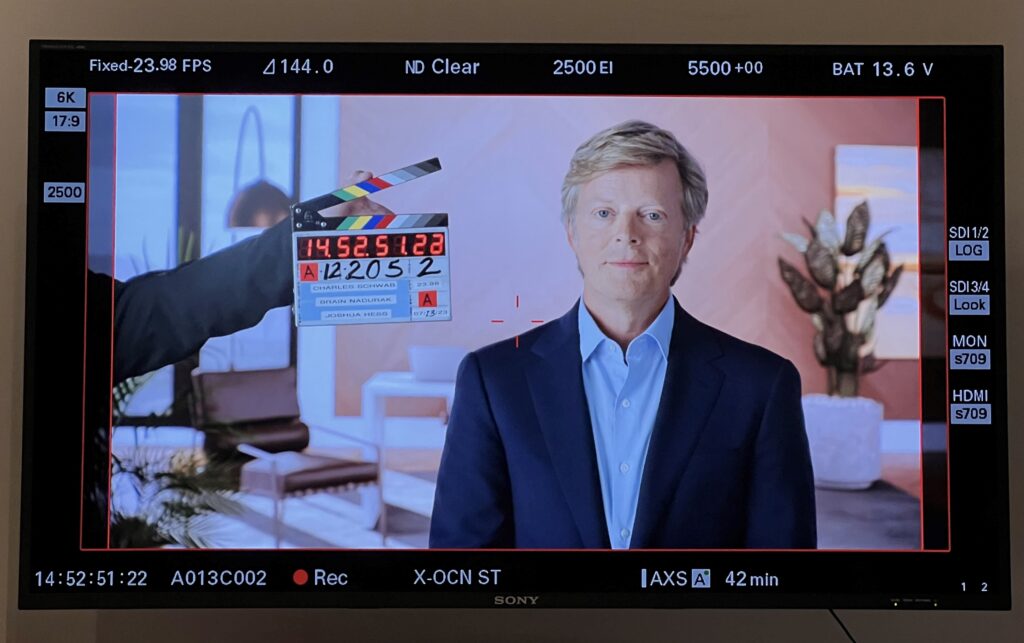Details Are Part of Our Difference
Embracing the Evidence at Anheuser-Busch – Mid 1980s
529 Best Practices
David Booth on How to Choose an Advisor
The One Minute Audio Clip You Need to Hear
Category: Planning
Picking up Pennies

At Hill Investment Group, we’re dedicated to putting the odds for the best possible returns in your favor, leaving no basis point behind. Since every client is unique, the method to accomplishing this goal is multifaceted. I have talked to dozens of other prominent investment advisors about how they systematically handle these issues for their clients.
The answer I get 90+% of the time is some combination of, “We are not doing X because… it is too much work, clients don’t know the difference, the benefit is small, etc.”. As your fiduciary, that doesn’t sit well with us. Our obligation is to seek the best solutions we can find for our clients…no matter what.
Therefore, at HIG, we’ll continue to pick up the pennies. Over the coming months, we plan to highlight how we do that and what the impact can be on your wealth over time. We will discuss the following topics, starting with the level of cash we hold in our clients’ portfolios.
- Volume 1 – Keep Cash Balances Low (Better Chance for Higher Returns)
- Volume 2 – Asset Location (Reduces Taxes)
- Volume 3 – Using ETFs (Reduces Taxes)
- Volume 4 – Trading ETFs in Competition (Reduces Trading Costs)
- Volume 5 – Number of Funds and Not Auto-Reinvesting Dividends (Reduces Trading Costs)
- Volume 6 – Tax Lots and Tax Loss Harvesting (Reduces Taxes)
- Volume 7 – Summary (Total Impact)
Most investment advisors and hold between 5-10% of their client’s portfolios in cash for convenience. The “better ones” out there will hold 2-4% cash. Holding a large buffer of cash means the advisor can be a bit lazier in monitoring and trading client portfolios. This buffer comes at a cost. It’s called “cash drag” because, in general, cash doesn’t earn as high a return over time as investing in stocks or bonds. Therefore, for every $1 of cash you hold, there is an opportunity cost… which depending on how much cash you hold, could be massive.
We don’t want our clients to incur that cost, and thus, HIG keeps cash levels well below 1%, ideally around 0.5% (unless the client has recurring withdrawals). Maintaining cash levels below 1% requires diligence and a commitment to active monitoring. It’s easy to keep a significant amount of cash on hand, but it’s far more challenging—and ultimately rewarding—to deploy those funds into investments that generate meaningful returns.
We want the mutual funds and ETFs we invest in to embody the same approach. The average mutual fund holds between 3-5% cash, causing meaningful cash drag to their investors. The funds we recommend generally keep cash in the 0.1-0.3% range. By minimizing cash drag in your accounts and in the funds you hold, your portfolio more closely reflects the asset allocation and the corresponding risk profile you set up with us, that we agree to maintain on their behalf.
The impact of reducing cash drag can be significant. On average, stocks outperform cash by 6% annually. This means that an additional 5% in cash could lead to a 0.3% reduction in returns annually. While it might seem like a small fraction, due to compounding, the deficit can accumulate significantly over time. For every $1,000,000 invested, a 6.0% vs 5.7% return over 30 years represents a difference in wealth of ~$450,000.
At Hill Investment Group, our dedication to maximizing returns sets us apart. Our commitment to picking up every basis point is part of a broader philosophy. We understand that the little things, the pennies, add up to create meaningful gains for our clients. Through careful management and a relentless pursuit of opportunities, we believe these small gains will culminate in a substantial increase in overall returns.
Stay tuned for more insights in the coming months as we continue to share how these small gains add up to significantly impact our clients’ portfolios.
5 Tips for a Winning Financial Planning Session
 Have you ever sat in your car in the parking lot after visiting the doctor for your annual physical and said to yourself, “Oh, I forgot to ask the doctor about X…Now it’s too late”?
Have you ever sat in your car in the parking lot after visiting the doctor for your annual physical and said to yourself, “Oh, I forgot to ask the doctor about X…Now it’s too late”?
We’ve all had those moments where more formal preparation would have made our meetings with doctors, lawyers, contractors, etc., more productive and valuable. Meeting with your financial advisor is no different. Preparation before your regular review can help you and the advisor. Here are five basic steps to help you prepare for the next meeting with your Hill client service advisor.
| ACTION STEP | WHY IT’S IMPORTANT | |
| 1 | Clear out other distractions before your meeting. | You are busy with a personal and professional life. But your review meeting is important, and you want to resist the urge to “squeeze it in.” Holding the meeting when all parties are mentally present is critical. Don’t hesitate to change the meeting date if need be. |
| 2 | Review the summary and actions from the last time you met with us. | This will help jog your memory. Your meetings should have continuity without that feeling of starting over. |
| 3 | Reflect on any changes in your family, priorities, spending, employment, and key milestones/events during the past year and ones that you already know will occur in the future. | Your financial plan is unique to you and your family. Sound advice depends upon a context – your life. The more Hill knows about your situation, the more tailored and thoughtful the conversation will be. |
| 4 | Review the agenda sent before the meeting and suggest additions or mark up with your notes. | Your review meeting is for you, and the agenda should reflect your priorities. This will ensure your time is focused on topics that are vital to you and your family. |
| 5 | Draft and bring along any questions and topics you’d like to hear more about. | Formally writing down questions ensures you don’t leave the meeting with that lingering question or topic. |
Years ago, when I taught leadership classes, one of my favorite quotes was from the Tanzanian marathoner Juma Ikangaa, who said, “The will to win means nothing without the will to prepare.” Okay, your financial review may not require the same sacrifice as training for a marathon, but taking these five steps can make you feel like your next review is a real win for you and your family.
Independent Difference Campaign

I’m proud to be a part of the independent advisor community. In the most simplistic definition, independence means that our firm does not fall under a major brokerage firm, bank or trust company. We operate independently and work for you, not a corporation. This is a hugely important distinction because our model allows us to operate objectively.
I was recently invited to be a part of a national ad campaign supporting independent advisors around the country, and I was taped saying lines like:
I am a fiduciary, not just some of the time, but all of the time.
As a fiduciary, I promise to put your interest first. Always.
As a fiduciary, I promise to always act in the best interests of you and your family.
We believe these statements at our core and think every investor deserves to be served by someone who works solely for them, as their fiduciary. Reciting these lines came naturally and we’re honored to help support the broader community of advisors.
Stay tuned for more information on the campaign, who it’s associated with, and when it will air!

